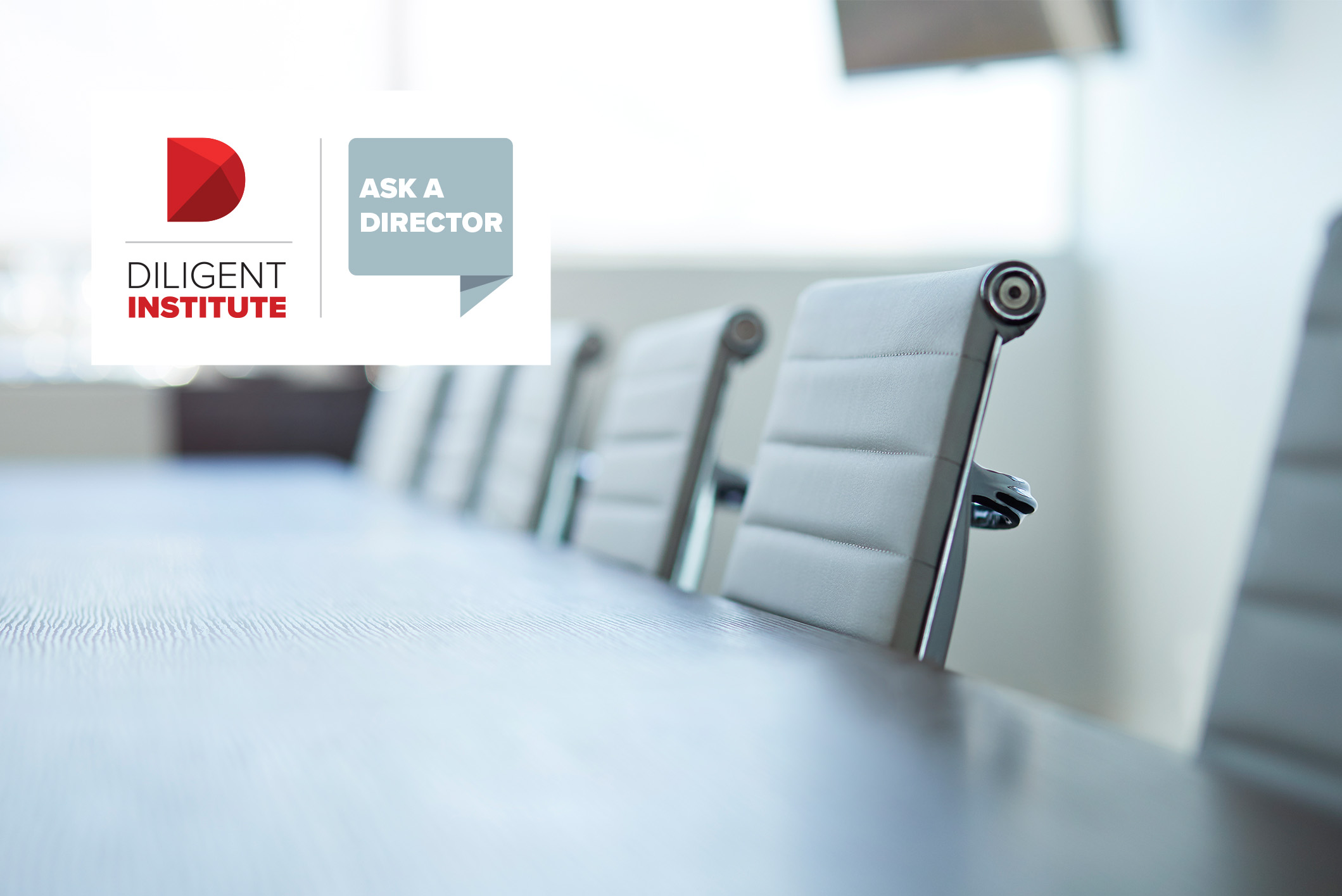How Does Corporate Governance Change in a Crisis?
Ask a Director Series, Part 1
This is the first of a five-part virtual panel series from Diligent Institute: “Ask a Director: How are Corporate Boards Responding to the COVID-19 Crisis?” Learn more about the series here.
The Panelists:
- Eileen Kamerick currently serves on four boards: Associated Banc-Corp. (NYSE), Legg Mason Closed-End Mutual Funds (NYSE), Hochschild Mining, plc (LSE), and AIG Funds. She chairs three audit committees and one corporate governance committee.
- Jamie Orlikoff is currently the Chairperson of the board for the St. Charles Health System in Bend, Oregon. He is also President of Orlikoff & Associates, Inc., a consulting firm specializing in healthcare governance and leadership, strategy, quality, and organizational development.
- Yiannis Petrides is a board member at Mytilineos S.A., a leading industrial company listed on the Greek stock exchange, and involved in the Energy and Mining sector. He is also a board member at Puig, a privately held company operating in the world of fashion and prestige fragrances, with a brand portfolio including Carolina Herrera, Paco Rabanne, Nina Ricci, and Jean-Paul Gaultier.
Read more here for full bios for all “Ask a Director: How are Corporate Boards responding to the COVID-19 Crisis?” panelists.
We Asked Directors about their COVID-19 Response. Here’s What They Told Us.
Different organizations are impacted by the COVID-19 crisis in different ways, based on factors including sector, location, size, and liquidity. For some, the crisis poses an existential threat to their businesses, even to their business models. For others, the crisis has accelerated demand for their companies’ goods and services. Some companies are experiencing harm now but anticipate they will withstand the crisis and recover once the pandemic subsides. Without exception, every company has been impacted in some way, and corporate governance has had to adapt accordingly.
Boards and Executives Should “Triage” Important Decisions
Hospitals and healthcare providers are at the forefront of the fight against COVID-19 — obviously they are heavily impacted, and the stakes are incredibly high. As the chair of a major healthcare system, Jamie Orlikoff framed the governance changes his board has adopted recently.
We’ve moved to an emergency [style] response to governance. This is a really important point — the components of high-quality governance are not fixed, and the relationship between management and the board is not a fixed line. Really effective boards have to be able to expand and adapt as appropriate. Inappropriate governance in normal times could be the best governance in crisis times.
Orlikoff was also able to provide more specificity about what that means practically for board meetings and decision-making.
In the board meetings, we are trying to do several things differently. First of all, it’s especially important not to be a burden to the CEO. We are taking routine items and the things that would normally occupy our time, and we either postpone them or move them to a consent agenda. So the first question is, can this get postponed? That’s for discussions, decisions, and committee meetings even. We apply a very different filter to separate the wheat from the chaff. What was wheat three months ago might be chaff now and might be chaff for the next couple of months. If there are things that have to be done but might not be critically important, then that’s where the expanded use of the consent agenda comes in.
The Line between Management & Governance Might Blur (Temporarily)
This is not the first time it’s been necessary for companies to rethink governance “norms.” Eileen Kamerick dug into the all-important distinction between management and the board by drawing on her experience with a previous crisis.
The whole idea of management versus governance has to adjust at various times. For example, in 2008‒2009, I had just stepped onto a bank board, and the world turned upside down. The board very intentionally blurred the line from pure governance to helping manage. We needed to have more direct interaction with regulators and, due to the nature of the crisis, we needed to be more engaged on a day-to-day basis.
She elaborated on what that might mean for organizations operating through the pandemic today. It’s important to keep a close eye on what is changing for the sake of expediency in order to enable a return to normal. Kamerick explains:
Depending on the company, the COVID-19 outbreak may require some sort of step [for the board] into a higher degree of day-to-day management. It just varies based on the circumstances. But you have to make sure that you’re very intentional about it: “We realize we’re going beyond normal governance, and there is a point at which we have to go back to that.” But in the midst of the crisis, it might be more interaction and on different topics than would be typical given normal governance practices.
Many boards have the ability to step up in this way: Directors bring unique skill sets, experiences, and perspectives, and from their particular vantage point can help the management team steer through the dangerous waters. Yiannis Petrides described how his board has increased activity during this time.
The board has come together a lot closer during this crisis — we are having more frequent and deeper communications, and everything is happening in real time. In normal circumstances, there is a process, and we meet periodically. But in this crisis, the communication is ongoing, and that makes sense, because you have to make more decisions and you have to make them a lot faster than you usually would.
>> Continue on to Part 2 of 5: How Should Management and Board Updates Be Handled During the Crisis?
>>Return to Introduction & Panelist Bios.
>>Return to Diligent Institute.





